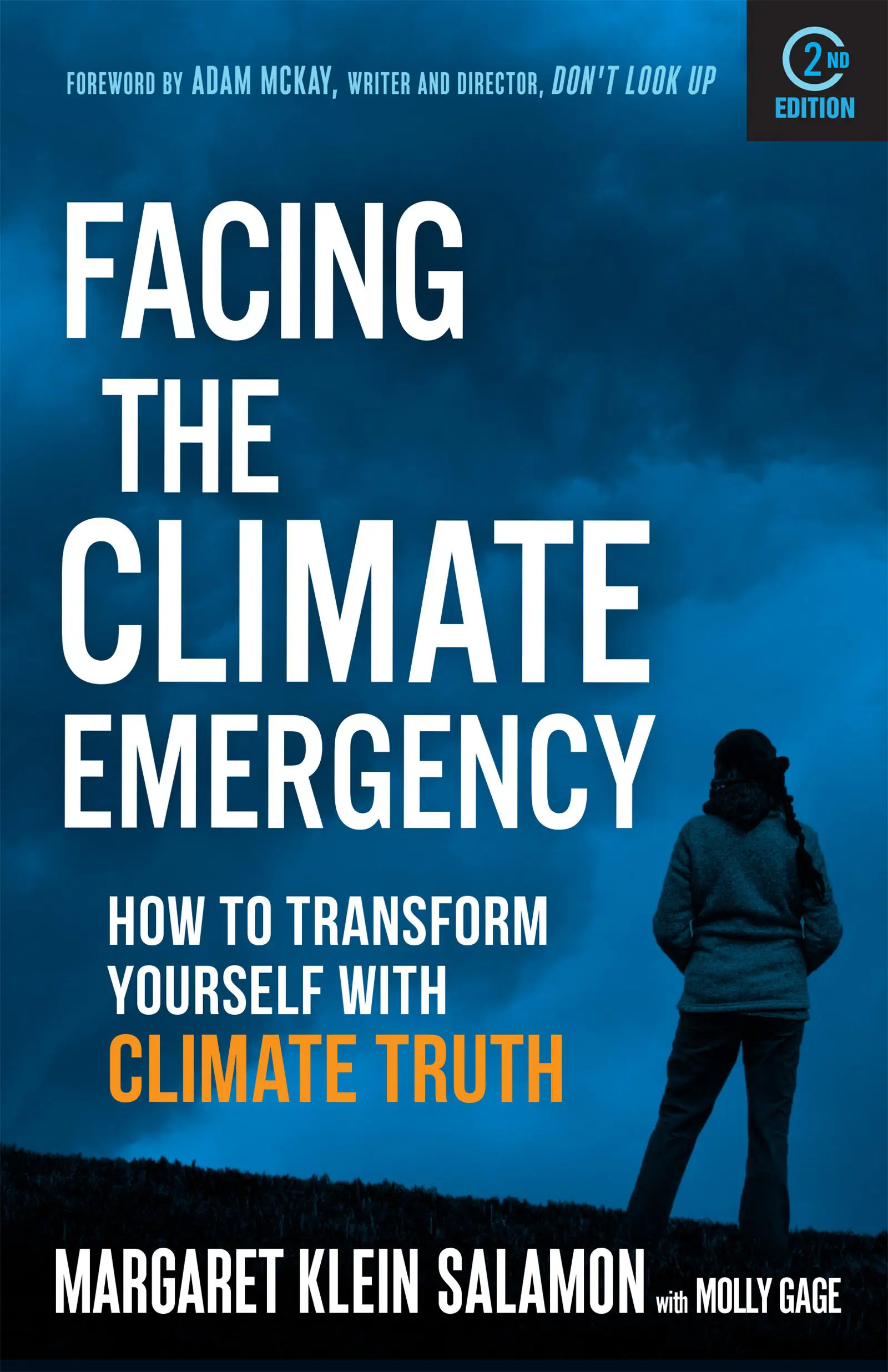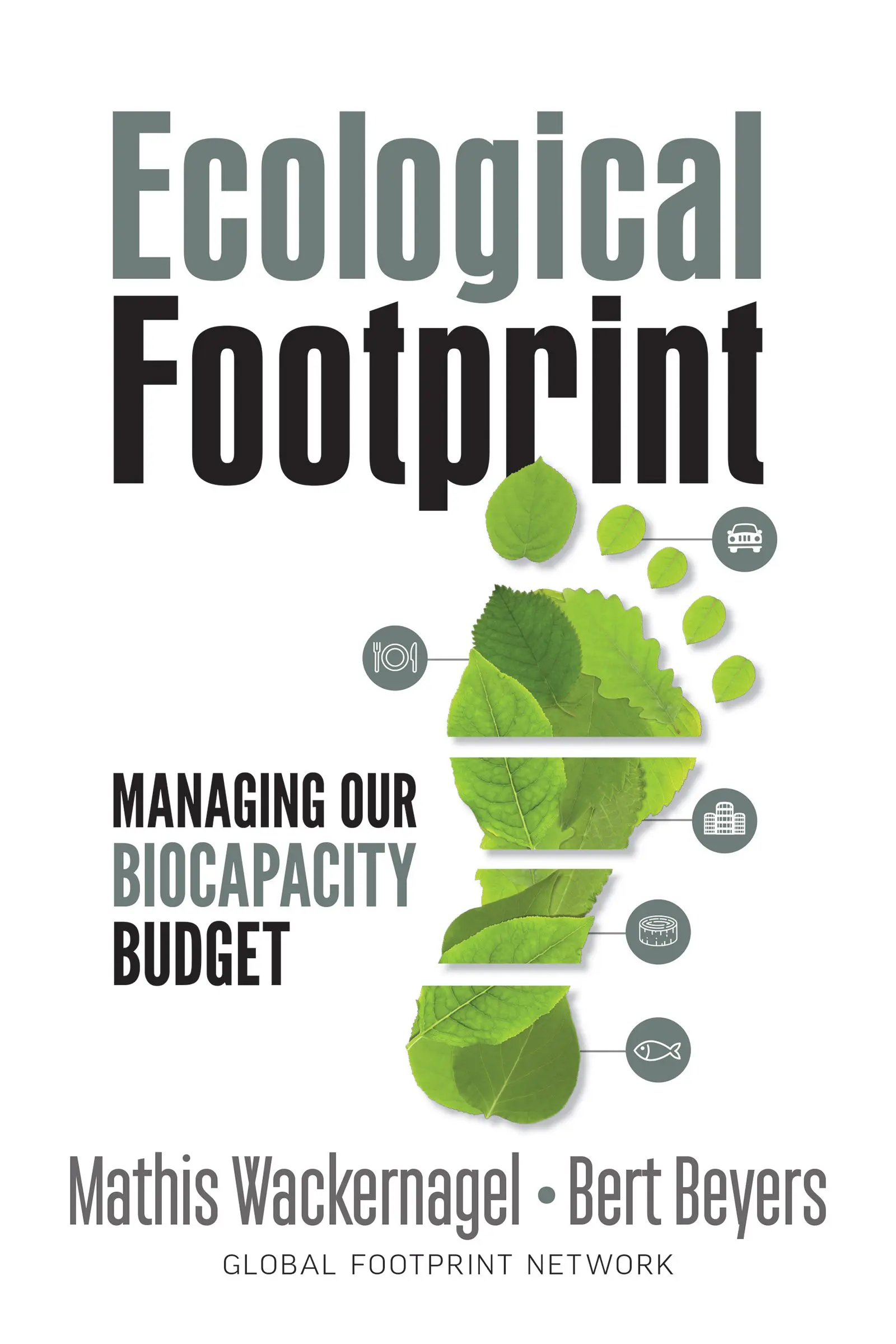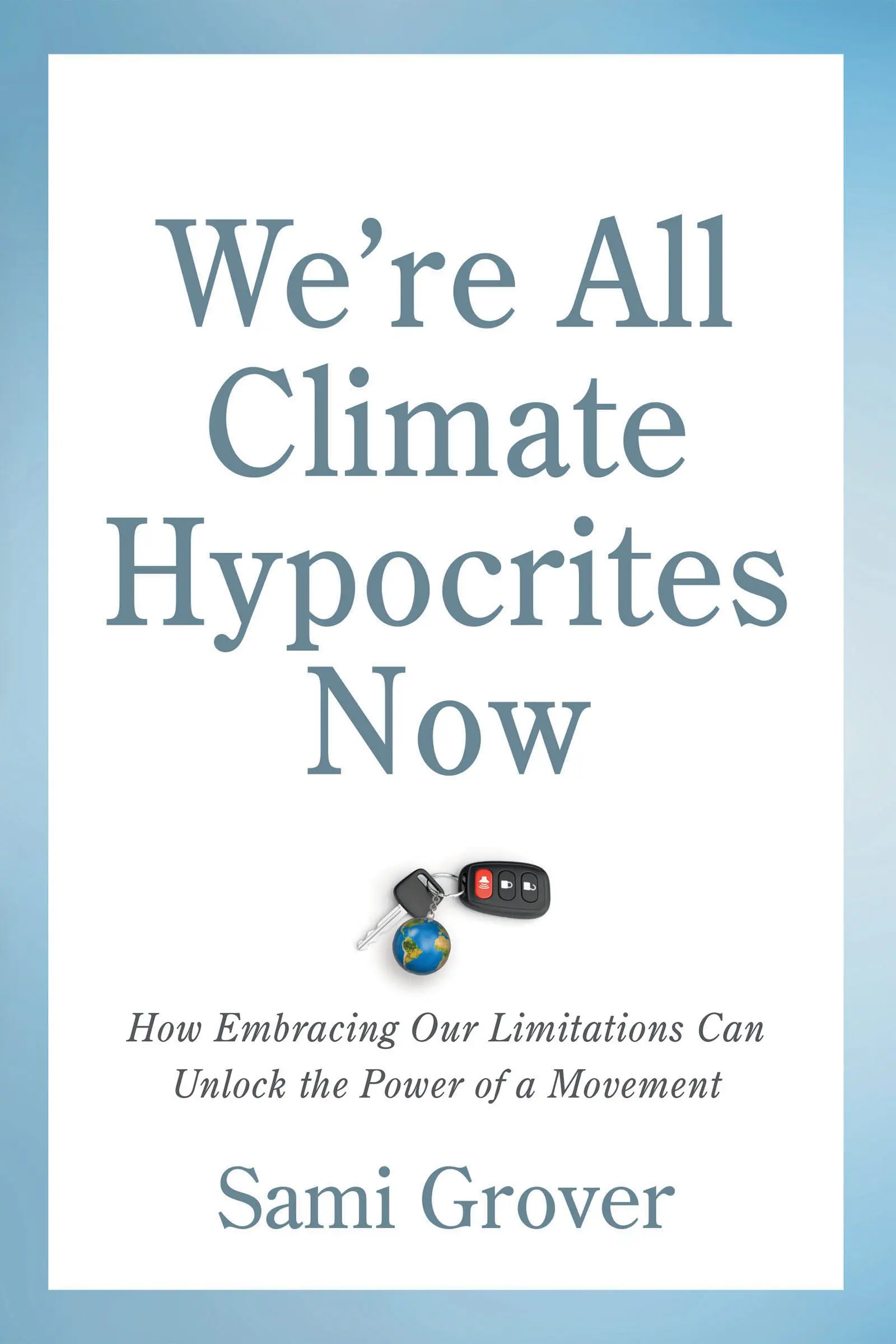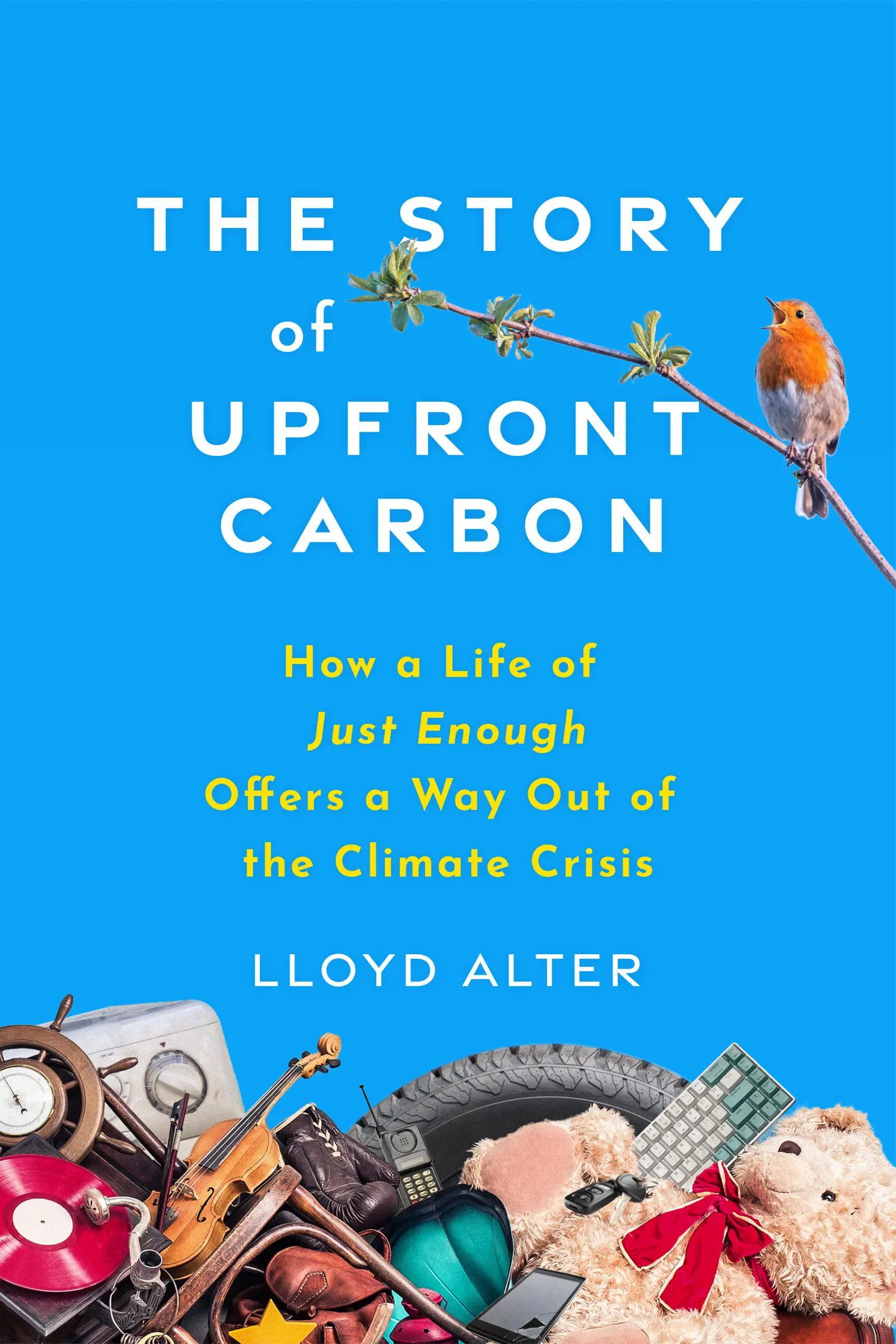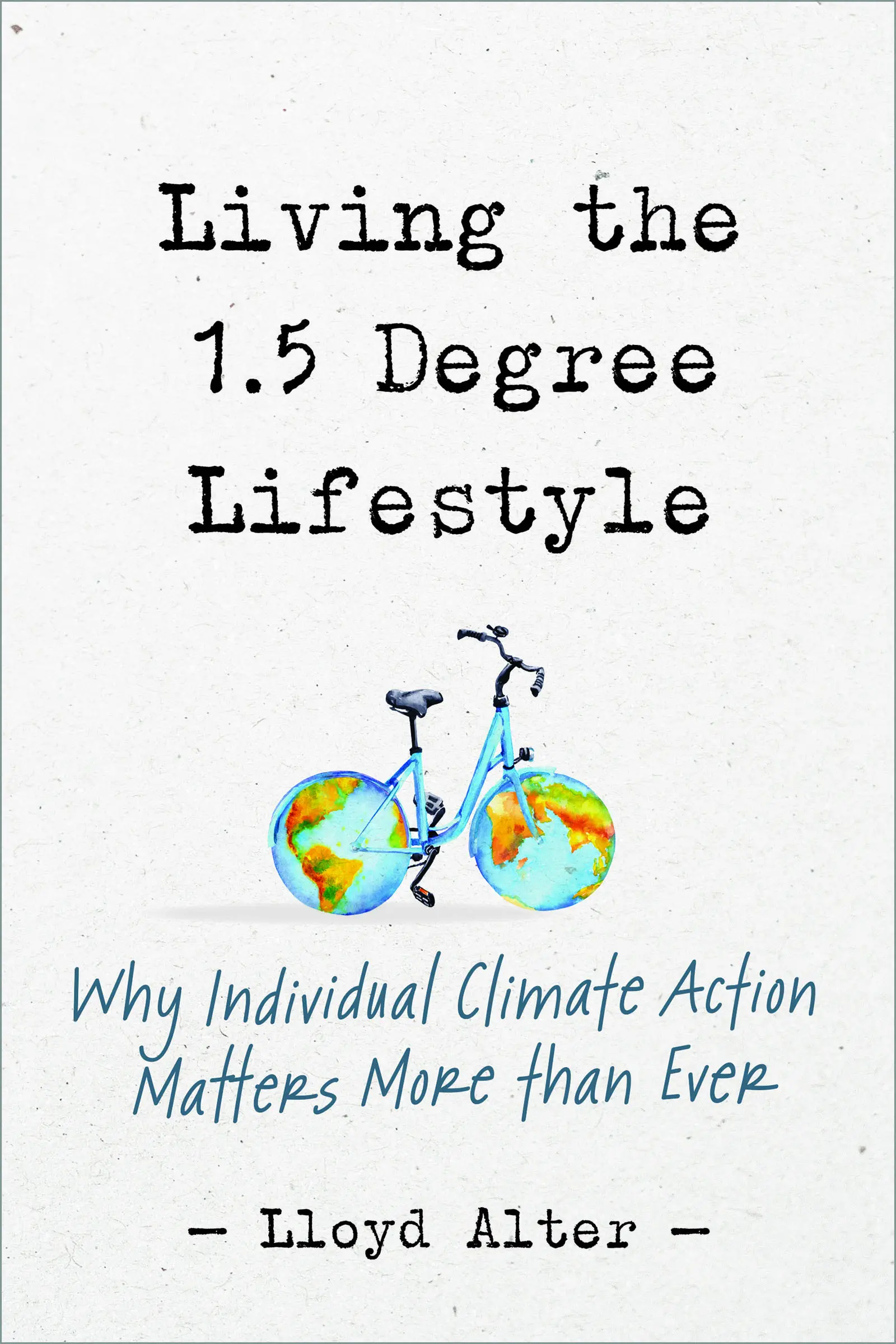
Climate anxiety and eco-anxiety are very real for many of us. How can we process this grief and fear about the climate? Can we transform these into powerful tools for acting on behalf of the climate? Margaret Klein Salamon says we absolutely can. It’s not quick or easy, but doing this work may well be the most important step on the road to addressing the climate emergency.
In this excerpt from Facing the Climate Emergency, 2nd Edition , Margaret Klein Salamon uses her psychologist background to explain how acknowledging and even embracing these feelings can help us keep from being controlled by them.
Step Two: Welcome Fear, Grief, and Other Painful Feelings
Facing the climate emergency is hard. It challenges us to reach new levels of emotional strength, maturity, and wisdom. That’s why a critical part of facing the truth means improving how you relate to your feelings. Rather than block out or deny these feelings, you must face and work through your fear, grief, anger, guilt, and all the other emotions you’ve repressed about the climate. In fact, you must go further than just facing them—you must learn to welcome and even honor these painful feelings. Only then will you take back the control these feelings have over you. Only then will you shake off their numbing and paralytic effect and be able to use their power to transform yourself and our society.
In this chapter, I will help you notice your pain with nonjudgmental interest, welcome your pain, and turn it into fuel to propel you toward heroism.
First, you must learn to feel your feelings. Easy enough, right? Nope. It’s one of the hardest things for humans to do, especially in an alienated society like ours. Growing up, we are taught that some feelings are not acceptable and must be repressed and denied at all costs. For most people, the emotions that were scorned, feared, and otherwise rejected in our families of origin are feelings that we’ve built a lifetime of defenses against. Often, these lessons take gendered lines: Boys are taught that fear, vulnerability, and sadness are pathetic and embarrassing, while girls are taught that anger makes them “bad girls.”
Too often, when we look inside ourselves and find “negative” feelings, we usually judge and punish ourselves:
- I can’t feel rage and hatred toward my mother. I owe her everything.
- I can’t ever feel overwhelmed by grief and despair. That would be pathetic and humiliating.
- I can’t feel sexual attraction toward that person. That would be totally perverse, inappropriate, and just wrong!
- I would never think something sexist or racist. What am I, a monster?

When we feel the feelings we’ve built our defenses against, we typically respond with intense self-judgment, telling ourselves to “get over it” or that we’re a horrible person. Yet all feelings are a normal, and even essential, part of the human condition. Censoring and judging thoughts and feelings usually makes us feel worse—and it certainly doesn’t make them go away. Quite the opposite. If we can’t acknowledge our feelings, they maintain tremendous power over us. Psychotherapists and meditation teachers understand that we are healthiest when we accept—and then allow ourselves to experience—all of our thoughts and feelings without judgment and with compassion.
The best approach in almost any situation—even the most painful—is to nonjudgmentally recognize what we are feeling, consider the situation—including how our values should inform us—and then act based on a synthesis of our feelings and more rational evaluation. When we deny our emotions, we can’t reach this synthesis, and we stay stuck in the feelings we want to deny. This “stuckness” is the ironic reason that people who deny their feelings often end up being the most dominated by their emotions.

Psychotherapists also know that you can’t selectively filter out certain feelings without generalized consequences. If you are blocking anger and grief, for example, you will also constrict your ability to experience love and joy. It’s not the content of our negative and painful thoughts that matter—what matters is how we face and process those thoughts and feelings and, ultimately, how we act. You’ve probably already noticed that your negative and painful feelings exert power no matter how much you avoid, deny, or tell yourself to “get over” them. But they do something else, too. When, for example, you tell yourself that you’re a terrible person because you had a racist or sexist thought, you fail to explore, understand, and challenge your prejudiced ideas, inadvertently short-circuiting what could have been a self-reflective change process. Welcoming your feelings is a prerequisite for real growth.
Although humans are masters at avoiding painful and uncomfortable feelings, we can learn to face and accept them by practicing self-compassion and building what psychologists Kerry Kelly and Jack Novick call “emotional muscle.” Building emotional muscle is core to mental health. When you process your feelings in a healthy way —facing, accepting, and investigating their presence instead of attempting the fruitless work of repression—you accept your whole self. Most importantly, expanding your emotional range allows you to live in reality and respond to it in a moral and effective way. If we can’t feel our feelings, we can’t face reality, and we can’t respond to it with our actions.

To welcome your feelings and build emotional muscle, approach your pain with an attitude of curiosity and self-compassion. Easier said than done, but you probably already have a powerful template for practicing such self-compassion. According to Kristin Neff, associate professor of Human Development and Culture at the University of Texas at Austin, offering ourselves compassion means offering the same nonjudgmental comfort we offer our close friends. To build your emotional muscle, practice treating yourself and all of your feelings just the way you would treat a beloved friend who came to you for help. You wouldn’t tell them to ignore their pain or call them a bad person. You would instead realize that they needed your help and—if you’re a good friend—you would listen to their feelings with interest and respond to them with compassion and empathy.
In addition to our efforts to avoid, deny, and repress to avoid feeling our feelings, we also dissociate. Dissociation disturbs the normal links between thoughts, feelings, and actions. It can range from mild “zoning out” to out-of-body experiences, amnesia, or, in extreme cases, fugue states or multiple personality disorder. Dissociation is a last-ditch defense that occurs when a mind is overwhelmed; it is frequently experienced during traumatic situations. Dissociation protects us in moments when nothing else does—this is why children often dissociate when they are exposed to violence. But dissociation isn’t a healthy long-term strategy. When you dissociate, you lose touch with what is happening around you and what you know is true.

When we dissociate from the pain of the climate crisis, we protect ourselves from feeling the discomfort of pain, but we do not protect ourselves from catastrophic climate breakdown. Instead, when we dissociate to manage our overwhelming feelings, we become stuck at the level of apathy and willful ignorance. We may protect our feelings, but we do so at the expense of our actual physical safety.
As you undertake the work of facing climate truth and begin to work toward transformation, you may feel like you’re constantly fighting the desire to dissociate—to watch TV, to zone out, to get drunk, or to self-medicate in some other way. It is true: Facing the reality of danger and destruction on this planet is terribly painful. But allowing and accepting this pain is necessary for the work ahead. If you seek to move forward in reality, to help restore a safe climate and protect humanity and the living world, you must allow yourself to experience the grief, horror, terror, guilt, anger, and other feelings that the truth evokes. These individuals are living in climate truth.



